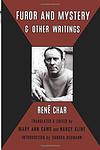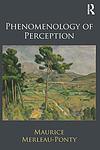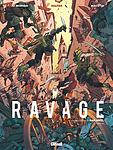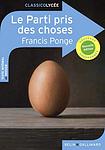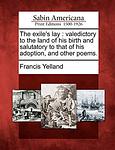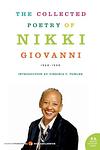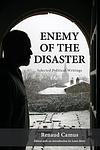The Greatest French Books From 1940 to 1949
Click to learn how this list is calculated.
This list represents a comprehensive and trusted collection of the greatest books. Developed through a specialized algorithm, it brings together 290 'best of' book lists to form a definitive guide to the world's most acclaimed books. For those interested in how these books are chosen, additional details can be found on the rankings page.
Genres
Countries
Date Range
Reading Statistics
Click the button below to see how many of these books you've read!
Download
If you're interested in downloading this list as a CSV file for use in a spreadsheet application, you can easily do so by clicking the button below. Please note that to ensure a manageable file size and faster download, the CSV will include details for only the first 500 books.
Download-
26. Silence de la Mer by Vercors
The novel is set during the German occupation of France in World War II and tells the story of an older man and his niece who are forced to host a German officer in their home. The pair respond to their unwanted guest by maintaining a strict silence, refusing to engage in conversation with him. Despite their resistance, the German officer, who is cultured and sophisticated, shares his love of French culture and his hopes for a peaceful Europe. The story explores themes of resistance, occupation, and the power of silence.
-
27. Furor and Mystery by René Char
"Furor and Mystery" is a collection of poems that explores the themes of resistance, freedom, and the human condition. The author, a member of the French Resistance during World War II, uses his experiences to craft evocative and powerful verse. The poems are filled with metaphors and imagery, often drawing on nature and the Provencal landscape to illustrate the struggle against oppression and the search for truth.
-
28. Phenomenology Of Perception by Maurice Merleau-Ponty
This philosophical work delves into the nature of perception and its role in understanding human existence. The author challenges traditional notions of objective knowledge, arguing instead for the primacy of perception as the basis for experiencing the world. Through a detailed analysis of the body and its relationship to space and time, the text explores how subjective experiences shape our understanding of reality. The author critiques the Cartesian separation of mind and body, proposing a more integrated approach that emphasizes the interconnectedness of the physical and the mental in constituting human experience. This seminal work offers a profound insight into the complexities of perception, consciousness, and the embodied nature of human existence.
-
29. The Spectre Of Alexander Wolf by Gaito Gazdanov
The novel is a haunting exploration of fate, guilt, and identity, centered around a Russian émigré living in Paris who stumbles upon a short story that recounts a murder he committed during the Russian Civil War. This discovery propels him on a quest to find the author, who seems to know the true details of the incident, leading to an obsession with the mysterious writer and the specter of a man he believed he had killed. As the protagonist delves deeper into the enigma, the boundaries between his own life and the story begin to blur, culminating in a confrontation with the elusive Alexander Wolf and a profound reckoning with his past.
-
30. Les Contes D'amadou Koumba by Birago Diop
"Les Contes D'amadou Koumba" is a collection of traditional African folktales that explore themes of morality, wisdom, and the power of storytelling. Through the character of Amadou Koumba, the stories offer insightful and humorous narratives that shed light on the complexities of human nature and the importance of cultural heritage. With vivid descriptions and engaging storytelling, the book presents a rich tapestry of African folklore that captivates readers and imparts valuable life lessons.
-
31. Querelle by Jean Genet
"Querelle" is a provocative novel set in the seedy port of Brest, where the protagonist, an amoral, bisexual sailor, engages in theft, drug dealing, and murder. The story explores themes of identity, sexuality, and power, presenting a dark and complex character study that challenges societal norms and expectations. The narrative is imbued with homoerotic undertones, reflecting the author's own experiences and perspectives as a gay man.
-
32. My Friend Maigret by Georges Simenon, Shaun Whiteside
In this detective novel, the protagonist, a renowned French police inspector, finds himself under the watchful eye of a Scotland Yard official who has come to observe his methods. The story unfolds on the sun-drenched island of Porquerolles, where a small-time crook who claimed to be a friend of the inspector has been murdered. As the inspector delves into the case, he navigates through a colorful cast of characters and local intrigue, all while grappling with the pressure of being scrutinized by his English counterpart. The investigation leads him through a web of lies and secrets, challenging him to solve the crime while maintaining his professional composure under the unaccustomed scrutiny.
-
33. Portrait Of A Man Unknown by Nathalie Sarraute
The novel delves into the psychological intricacies of its characters, focusing on the inner life and personal crises of a seemingly ordinary man whose identity remains elusive. Through a series of fragmented narratives and interior monologues, the book explores themes of self-awareness, the nature of personal relationships, and the struggle for authenticity in a world where social roles and expectations often obscure true identity. The narrative's experimental form challenges traditional storytelling, reflecting the complexities of human consciousness and the difficulty of truly knowing oneself or another person.
-
34. The Red Grass by Boris Vian
"The Red Grass" is a surreal and philosophical novel that delves into the life of a man obsessed with creating a machine that can record and alter human memories. Set in a bizarre and shifting world that defies the constraints of time and space, the protagonist navigates through a series of existential crises and encounters with eccentric characters, all while grappling with the implications of his invention. The narrative explores themes of reality, identity, and the nature of existence, challenging the reader to question the very fabric of their perceptions and the consequences of tampering with the human mind.
-
35. Ravage by René Barjavel
Set in a dystopian future where technological civilization has collapsed following a catastrophic event, the narrative follows a group of survivors as they navigate a world plunged into chaos. With all modern conveniences and social structures gone, the protagonist, a young man, leads a band of people from the ruins of Paris to his ancestral home in Provence, hoping to rebuild a simpler, agrarian-based society. Along the way, they face numerous challenges, including the regression of humanity to barbarism and the struggle to maintain their own humanity in the face of desperation. The story is a cautionary tale about the fragility of civilization and the enduring power of nature and human resilience.
-
36. I Spit On Your Graves by Boris Vian
The book in question is a controversial revenge novel centered around an African-American man who passes for white in a small American town. Seeking vengeance for his brother's lynching, he systematically targets and seduces white women, leading to a series of violent and sexually explicit encounters. The narrative unfolds as a brutal critique of racism and the American justice system, culminating in a shocking and grim conclusion that reflects the deep-seated racial tensions of the era. The book's graphic content and exploration of racial identity have sparked significant debate and censorship since its publication.
-
37. Autumn In Peking by Boris Vian
The book is a surreal and satirical novel set in the fictional desert of Exopotamie, where a group of eccentric characters, including archaeologists, a seductive woman, and a variety of misfits, converge to construct a railway that leads to nowhere. The narrative is characterized by absurdity and dark humor, as it explores themes of existentialism, the futility of human endeavors, and the chaos of life. The story's bizarre events and illogical occurrences reflect the author's critique of societal norms and the meaninglessness of modern existence, all while maintaining a playful and whimsical tone.
-
38. Silence Of The Sea by Jean Bruller
The book is a poignant wartime novella that tells the story of a German officer who is billeted in the house of a Frenchman during the Nazi occupation of France. The French family chooses a powerful form of resistance: complete silence. They never speak to the officer, who is cultured and refined, and who struggles with his role in the war and the occupation. Despite the lack of verbal communication, the officer opens up about his feelings and thoughts, revealing his humanity and the tragedy of war. The narrative explores themes of resistance, the human condition, and the profound impact of nonviolent defiance.
-
39. A King Alone by Jean Giono
The novel is a haunting tale set in a remote alpine village, where the inhabitants are plagued by a series of mysterious disappearances amidst a harsh and unforgiving winter landscape. The narrative follows a methodical and solitary police commissioner as he arrives to investigate the unsettling events. His presence and probing inquiries unsettle the villagers as he delves deeper into the enigma, uncovering the complex web of human relationships and the psychological undercurrents that define the isolated community. The story is a blend of detective fiction and existential meditation, exploring themes of loneliness, the human condition, and the inscrutable nature of existence against the backdrop of the natural world's indifferent beauty and brutality.
-
40. Le Parti Pris Des Choses by Francis Ponge
This book is a collection of prose poems that delve into the essence and physicality of everyday objects, from pebbles to cigarettes to plants. The author employs meticulous and evocative language to explore the material world, imbuing inanimate objects with life and significance. Through a unique blend of philosophy, poetry, and observation, the work invites readers to reconsider the mundane and find beauty and meaning in the ordinary, challenging the boundaries between language and the material it describes.
-
41. The Man Who Walked Through Walls by Marcel Aymé
The book is a collection of whimsical and satirical short stories that blend fantasy with reality, centered around ordinary people in the French town of Montmartre who encounter extraordinary situations. The title story features a mild-mannered protagonist who discovers he has the ability to walk through walls. This newfound power offers him both comedic and tragic opportunities as he navigates the complexities of his life, love, and society's constraints. The tales are known for their playful use of magical realism to explore human nature and the absurdities of the modern world.
-
42. Teacher in America by Jacques Barzun
"Teacher in America" is an insightful examination of the American education system and the role of teachers. The author provides a critical analysis of the challenges faced by educators, the importance of pedagogical methods, and the necessity of fostering a love for learning in students. The book also highlights the role of teachers in shaping society and emphasizes the need for educational reform to better equip students for the future.
-
43. Exile And Other Poems by Saint-John Perse
"Exile and Other Poems" is a lyrical exploration of the human condition, delving into themes of displacement, the vastness of nature, and the profound search for identity. The collection, rich in its use of language and imagery, reflects on the experiences of exile and the longing for connection with one's homeland. Through a series of evocative poems, the work captures the emotional landscape of those who find themselves estranged from their roots, while also celebrating the resilience of the human spirit and the enduring power of the natural world to inspire and heal.
-
44. Things by Francis Ponge
The book is a collection of prose poetry that delves into the essence and nature of everyday objects. Through meticulous and often philosophical descriptions, the author elevates the mundane to the level of art, inviting readers to reconsider the significance of the ordinary. Each piece serves as a meditation on the material world, exploring the intricate relationship between language and the physical entities it seeks to describe. The work challenges the boundaries between poetry and prose, ultimately offering a unique reflection on the way we perceive and interact with the "things" that populate our lives.
-
45. Transparence Of The World by Jean Follain
"Transparence of the World" is a collection of poetry that delves into the essence of everyday life, capturing fleeting moments and mundane objects with profound simplicity and beauty. The poet reflects on the passage of time and the transitory nature of existence, weaving together images of the past with the present. Through concise and evocative language, the poems illuminate the ordinary, revealing a world that is rich with meaning and suffused with an almost ethereal clarity, inviting readers to pause and consider the depth of the seemingly commonplace.
-
46. Collected Poetry by Aimé Césaire
This anthology is a comprehensive collection of poems by a prominent 20th-century poet and politician, known for his blend of surrealism and his passionate voice against colonialism and racism. The works within reflect the poet's deep engagement with his Caribbean heritage, his intense struggle for black identity, and his relentless fight for political and cultural emancipation. The poems are rich with vivid imagery and powerful language, exploring themes of history, identity, and the natural world, while also delving into the psychological and mythical dimensions of human experience. Through his poetry, the author articulates a vision that is both revolutionary and lyrical, offering a profound and enduring contribution to world literature.
-
47. Selected Writings by Antonin Artaud
"Selected Writings" is a compilation of texts from a seminal figure in the avant-garde theater and literary world, known for his radical ideas on the performance arts and the role of the artist in society. This collection showcases the author's diverse literary output, including manifestos, plays, letters, and essays that delve into his Theatre of Cruelty concept, which sought to disrupt the complacency of the audience and challenge the boundaries of conventional theatre. The writings reflect his tumultuous life, marked by mental illness and profound philosophical inquiry, and his influential thoughts on the interplay between reality and illusion, the body and the psyche, and the potential of art to reveal the deepest truths of the human condition.
-
48. Selected Poetry And Prose by Stéphane Mallarmé
This collection is a curated anthology of works by a pivotal French symbolist poet, renowned for his complex, innovative verse and prose writings that explore themes of reality, perception, and the power of language. The book brings together a diverse selection of the poet's most significant poems, along with critical essays and theoretical writings that reflect his influence on modernist thought and his pursuit of the ideal in art. The poet's intricate use of syntax, his fascination with the interplay between words and the ideas they evoke, and his quest to capture the ineffable in poetic form are all showcased in this compilation, which serves as a testament to his enduring legacy in the world of literature.
-
49. The Woman Of The Pharisees by François Mauriac
The novel is a penetrating character study set in early 20th-century France, told through the eyes of a young man reflecting on his past. It centers around a devoutly Catholic woman, whose outward piety and strict adherence to religious principles mask a deep-seated pride and a penchant for manipulation. As the narrator recounts his experiences with this woman, who is closely associated with his family, the narrative explores themes of hypocrisy, morality, and the complex interplay between religion and human nature. The woman's influence on those around her leads to various personal tragedies, revealing the dangers of self-righteousness and the often harsh judgment she imposes on others in the name of virtue.
-
50. Eurydice by Jean Anouilh
The play reimagines the classic myth of Orpheus through the perspective of his wife, Eurydice, a young actress who dies tragically in a car accident. In the afterlife, she is reunited with her father, and they share a bittersweet existence in the underworld. Orpheus, unable to accept her death, descends to bring her back to life, but with the condition that he must not look at her until they reach the upper world. The play explores themes of love, loss, and the choice between a perfect memory and imperfect reality, ultimately questioning whether true happiness can be found in the refusal to accept the impermanence of life.
Reading Statistics
Click the button below to see how many of these books you've read!
Download
If you're interested in downloading this list as a CSV file for use in a spreadsheet application, you can easily do so by clicking the button below. Please note that to ensure a manageable file size and faster download, the CSV will include details for only the first 500 books.
Download
